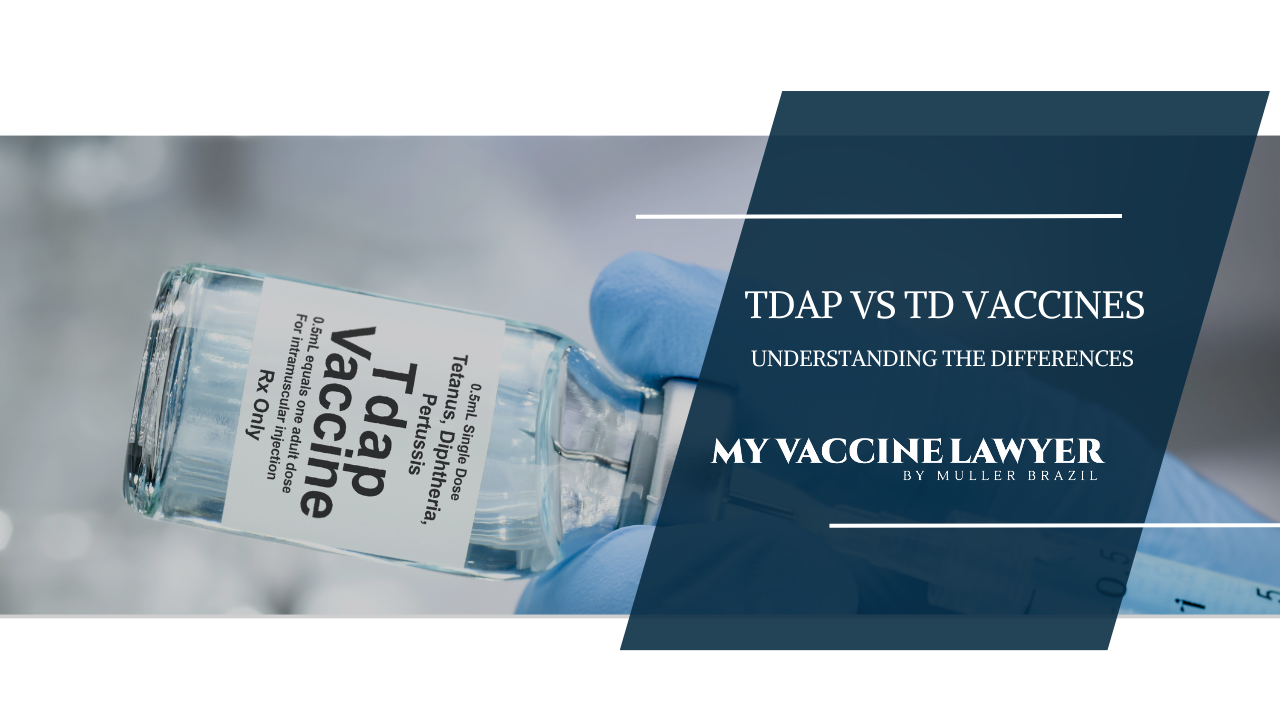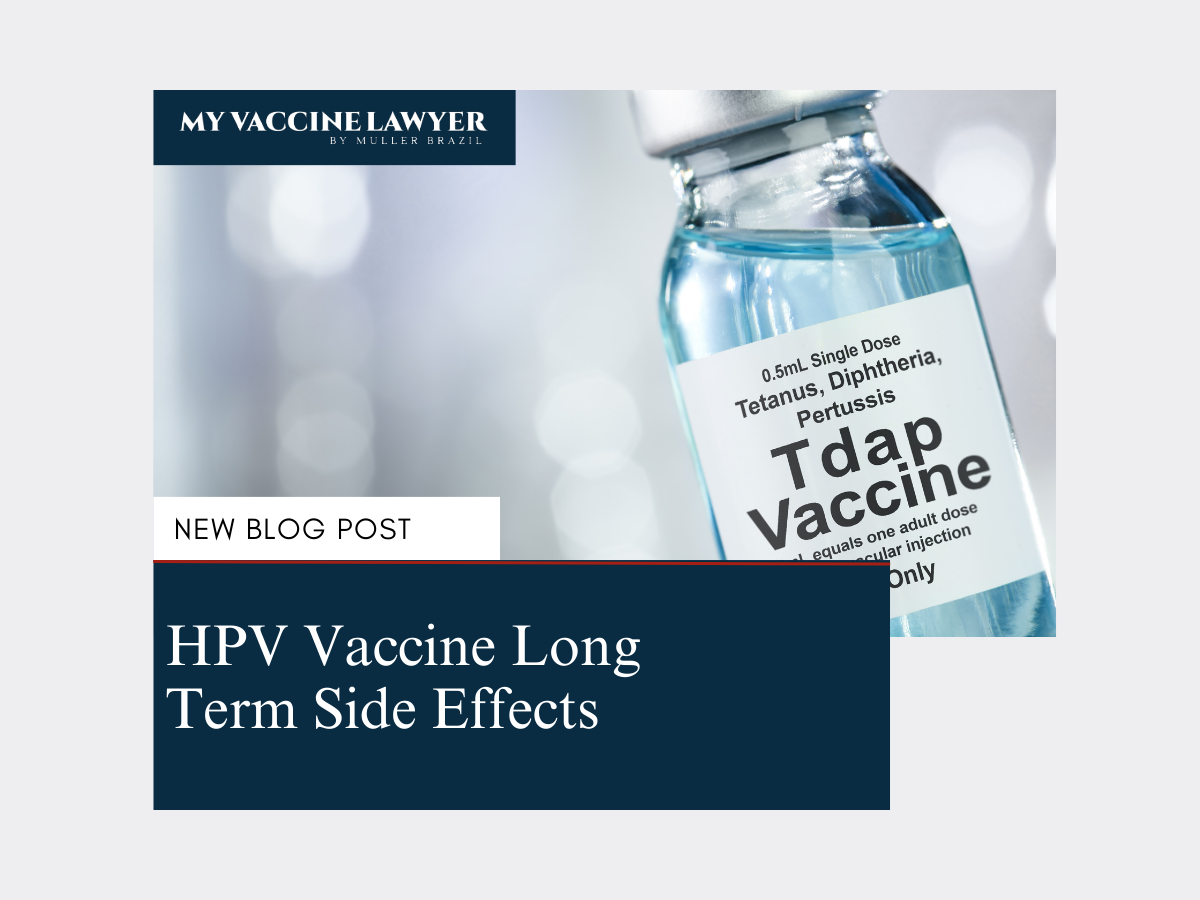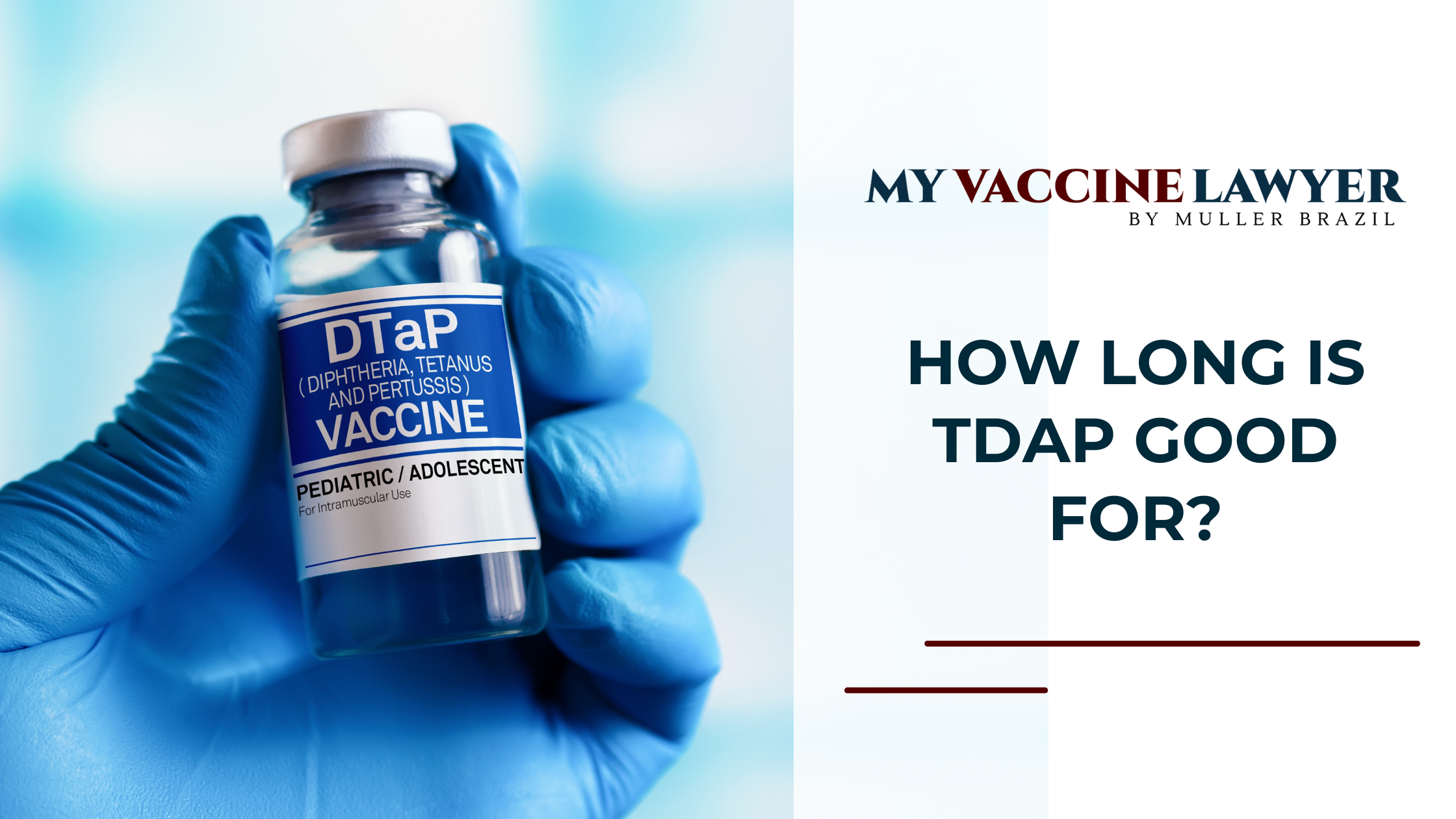Tdap vs. Td Vaccines: Key Differences Explained
Vaccination is important in protecting our health and preventing the spread of potentially life-threatening diseases. When protecting against tetanus...
5 min read
Vaccine Injury Law Resources / TDAP / How Long is Tdap Good For?
 Paul Brazil
:
Jan 14, 2025 8:03:00 AM
Paul Brazil
:
Jan 14, 2025 8:03:00 AM
Vaccines have a powerful role in protecting against dangerous diseases, especially for older adults and individuals at high risk.
The Tdap vaccine protects against tetanus, diphtheria, and pertussis (whooping cough), all of which can lead to severe illness and complications. Over time, immunity to these diseases can weaken, which is why staying on track with booster doses is so important.
Understanding how long the Tdap vaccine lasts, when booster shots are needed, and how they help maintain protection is key to staying healthy and preventing serious infections.
The Tdap vaccine is a combination vaccine that protects against three potentially severe bacterial infections: tetanus, diphtheria, and pertussis (whooping cough).
The Tdap vaccine is recommended for individuals ages 7 and older, including pregnant people and those needing a booster dose. It’s typically administered as a single dose to adolescents and adults to help maintain immunity against tetanus, diphtheria, and pertussis. The Tdap vaccination helps with immunization against these serious illnesses, which can be life-threatening if left untreated.
Take Control of Your Injury Today
The Tdap vaccine provides protection against tetanus, diphtheria, and pertussis for up to 10 years. It’s typically given as a booster dose starting at age 11 or 12 and repeated every decade. Over time, immunity can decrease, especially when it comes to pertussis, which is why booster shots are necessary to maintain effective protection.
In addition to the routine booster dose every 10 years, certain groups may need an additional dose:
Regular booster shots help protect against these bacterial infections that can cause serious health complications, including difficulty breathing and heart failure, particularly for older adults and young infants.
As with all vaccines, there are some situations where the Tdap vaccine may not be appropriate, and potential side effects to be aware of.
Most people experience only mild side effects from the Tdap shot, which generally go away within a few days. Common side effects include:
While severe side effects are rare, they can occur. These might include:
If any of these severe reactions occur, it’s important to seek medical help immediately.
While both the DTaP and Tdap vaccines protect against tetanus, diphtheria, and pertussis, they are designed for different age groups and serve slightly different purposes.
The Tdap vaccine helps maintain immunity over time, while the DTaP vaccine provides stronger initial protection for younger children as they build their immune defenses.
While the Tdap vaccine is generally safe, as with any medical intervention, there is a risk of vaccine injuries. Most side effects are mild and temporary, such as soreness at the injection site, mild fever, or fatigue. However, in rare cases, more serious adverse reactions can occur, including:
If you have experienced a serious adverse reaction to the Tdap vaccine, it’s important to seek medical help immediately. Additionally, individuals who suffer from a vaccine injury may be entitled to compensation through the Vaccine Injury Compensation Program (VICP), a federal program that provides financial support to those harmed by vaccines.
The Tdap vaccine helps in preventing tetanus, diphtheria, and whooping cough, offering protection to both individuals and the wider community. By staying up-to-date with regular booster doses, you can ensure that you are protected from these serious illnesses. Whether you are a pregnant woman, a caregiver, or simply looking to maintain your immunity, the Tdap vaccine is a necessary step in protecting your health.
However, if you or a loved one has experienced a vaccine injury as a result of the Tdap vaccine, it’s important to know your rights. Vaccine injuries can have long-lasting effects, and those affected may be eligible for compensation through the Vaccine Injury Compensation Program (VICP).
At My Vaccine Lawyer, we specialize in helping individuals who have been harmed by vaccines. If you believe you or someone you know has been injured due to the Tdap vaccine, contact us for a free consultation. Our attorneys will guide you through the process and fight for the compensation and justice you deserve.
Don’t wait, contact My Vaccine Lawyer today at 877-299-7704 or email us at info@myvaccinelawyer.com now to learn more about your options.
The pertussis vaccine is a component of the Tdap vaccine, designed to protect against whooping cough. It is necessary for preventing this highly contagious disease, especially in young infants and older adults.
The Td vaccine is similar to the Tdap vaccine, but it does not contain the pertussis (whooping cough) component. Td is typically given as a booster shot for tetanus and diphtheria for adults who have already received the Tdap vaccine in the past.
Some mild discomfort at the injection site is common after receiving the Tdap vaccine. This can include soreness, redness, or swelling, which typically resolves on its own within a few days. If you experience severe pain or unusual side effects, it’s important to contact your healthcare provider.
The Tdap vaccine helps control the spread of tetanus, diphtheria, and pertussis by providing immunity to individuals and reducing the risk of outbreaks. Vaccination is an important part of disease control efforts in protecting public health.
The protection provided by the Tdap vaccine lasts for about 10 years. After that, a booster dose is recommended to maintain immunity, especially against pertussis, diphtheria, and tetanus. Regular boosters ensure continued protection and help prevent the spread of these serious illnesses.
Paul Brazil is a native of Dunmore, Pennsylvania and a graduate of Dunmore High School. For his undergraduate education, he attended Bloomsburg University where he majored in political science. He then went on to earn his JD from Widener University School of Law. Following graduation from law school, Mr. Brazil worked at a large Philadelphia civil defense firm where he litigated workers’ compensation claims and Heart and Lung Act cases. In 2012, he joined with his coworker Max Muller to form Muller Brazil.

Vaccination is important in protecting our health and preventing the spread of potentially life-threatening diseases. When protecting against tetanus...

The Tdap vaccine is an immunization that protects against three serious diseases: tetanus, diphtheria, and pertussis (whooping cough). While the...

Vaccines stand at the forefront of modern medicine, vital in protecting public health. Yet, understanding vaccine-induced side effects is equally...
